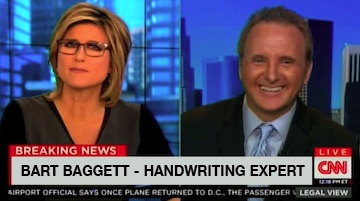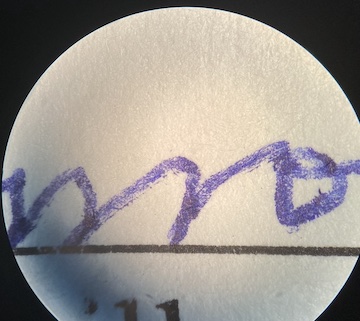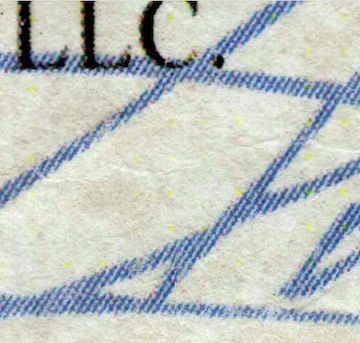The death of your parents is a difficult time. Dealing with the probate court and a possible forged will is also a burden many children across the globe must deal with. This short article tells you how.
If you’re reading this, you’re probably in the unfortunate situation of having one of your parents pass away, and you’re stuck dealing with the last will and testament.
If the signature on the Last Will and Testament or those Trust documents doesn’t look like an authentic signature, this article is for you.
My name is Bart Baggett and my company (Handwriting Experts Inc) http://handwritingexpertusa.com deals with probate cases every day. We deal with signatures, trusts, deeds, and Will.

Oftentimes, it is in the case where someone has passed away and the entire estate rest in the hands of the probate court judge. Your parent’s house, cards, jewelry, and the entire estate can be handed to the idiot step-child if the judge thinks that is the last wishes of your parents.
It’s our burden to figure out our parents’ stuff. And unfortunately, it’s really, really common for brothers, sisters, uncles, and caretakers to forge wills and take everything— and I mean everything!
So, you’re not alone in this situation. And I know it’s confusing. If you’re not an attorney, then this will be very helpful for you. I’ll walk you through how we work with probate cases and how a court-qualified handwriting expert can help you during the process.
At Handwriting Experts Inc., we are document examiners. We take handwriting samples of the decedent—your mom or your dad—and we determine if indeed the will for this person has been forged.
Here are the steps we follow to determine if a Last Will and Testament has been forged.
- Is there a document with the original, or “wet”, signature?
Often times in a probate case, there’s an actual wet, or original, signature sitting at the courthouse with a will. But that’s not always true. If it’s possible to get access to that will, I’ll personally come with my microscope. Or, one of my people will come into the courthouse, take photographs of it, and make sure that it’s a wet signature.


- Compare the signature on the will with other samples of the decedent’s signature.
Next, we’ll compare those signatures to other samples of your parent’s handwriting—their passport, visa, checkbook, birth certificates, wedding certificates, etc. We’ll look for their known handwriting. Your that’s your job is to find their known handwriting. And then, we will compare it.
- Determine if the signature on the will is authentic or if it has been forged.
We’re handwriting experts. I’ve been doing this for 30 years; I’ll know for sure whether that signature is forged. Even if the parent was really sick, had Alzheimer’s or Parkinson’s, we can take all that into consideration. And it’s impossible to slip a forgery past trained eyes.
So, once I or my team does that job, we decide if a forgery happened. If it did, we’ll write a declaration. And if you need, we’ll come to court and testify on your behalf.
If this is a service that you need, the pricing is on our website.
Whether you deal with me or any of our experts, or any expert in the country for that matter, the process is pretty much the same. In order to prove a forgery in court, you’re going to have to hire a forensic handwriting expert, and they’re going to have to be court qualified. They’re going to have to testify. Otherwise, it’s just your word against his or hers.
And that’s the process of how you handle the determination of a forgery of a will and testament in court.
If you need our help, please reach out. Our main website is handwritingexperts.com. You can hire any of our professional experts on the website. If you want to hire me directly, go to handwritingexpertusa.com.
We have offices around the country, and we’ll travel to you to help you through this difficult time. While we know the circumstances for needing our services are not the best, at least you can rest knowing the wishes of your loved one have been fulfilled.